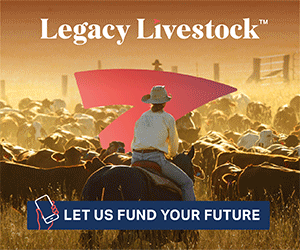A NEW Prime Minister has been elected across the ditch, with New Zealand voting in a conservative coalition vowing to make changes to controversial agricultural policies that have made international news in recent years.
Former Air NZ chief executive officer Christopher Luxon’s National Party was voted in ahead of the Labour party, who had been in office since 2017. The Nationals will form a coalition with fellow conservative party ACT NZ.
The Labour government made some controversial agricultural policies, including:
- Introducing the “burp tax”, which would have seen livestock producers taxed for their methane emissions by 2025
- Banning live export, with the trade finishing earlier this year
- Allowing large portions of land to be put into pine plantations to offset carbon emissions.
According to local news website NewsHub, The National Party vowed to shake up all three policies, pushing the “burp tax” to 2030 to allow for more consultation and putting a three-year ban on new pine plantations, while banishing them from prime farmland. The party also unveiled plans to reinstate live animal export with more strict safety oversight.
Labour’s policies had drawn widespread protests from NZ’s agricultural community, with many of the farm lobby groups claiming they had not been listened to in the process.
Beef Central spoke to some NZ producers at this year’s Angus Australia conference in Tamworth, who were willing a change of government and were not sure how they were going to comply with the methane tax.
 A new lobby group, called Groundswell NZ, was formed in 2020 by a group of farmers to oppose the environmental policies. It welcomed the election result on its Facebook page, however, said in a comment that it was keen to keep lobbying for changes to climate changes legislation.
A new lobby group, called Groundswell NZ, was formed in 2020 by a group of farmers to oppose the environmental policies. It welcomed the election result on its Facebook page, however, said in a comment that it was keen to keep lobbying for changes to climate changes legislation.
Andrew Hoggard, who is the leader of one of the more established lobby groups, Federated Farmers of NZ, ran in the election for coalition partner ACT NZ, where he won his seat.
Mr Hoggard and many in the livestock advocacy have been campaigning to have the government push newer methods of measuring methane, namely GWP* (global warming potential), which is supported by other groups including Beef + Lamb NZ. Similar policy was pushed by Cattle Australia earlier this year.
Other countries opposing emissions laws
Tough livestock emissions legislation has also seen political pushback in other parts of the world – including Ireland and The Netherlands.
Provincial elections in The Netherlands earlier this year saw a group called the Farmer-Citizen movement dominate on the platform of pushing back against nitrogen legislation which would have seen thousands of farms shut.
According to Bloomberg, The Netherlands has now dropped its 2030 deadline for the nitrogen legislation.

